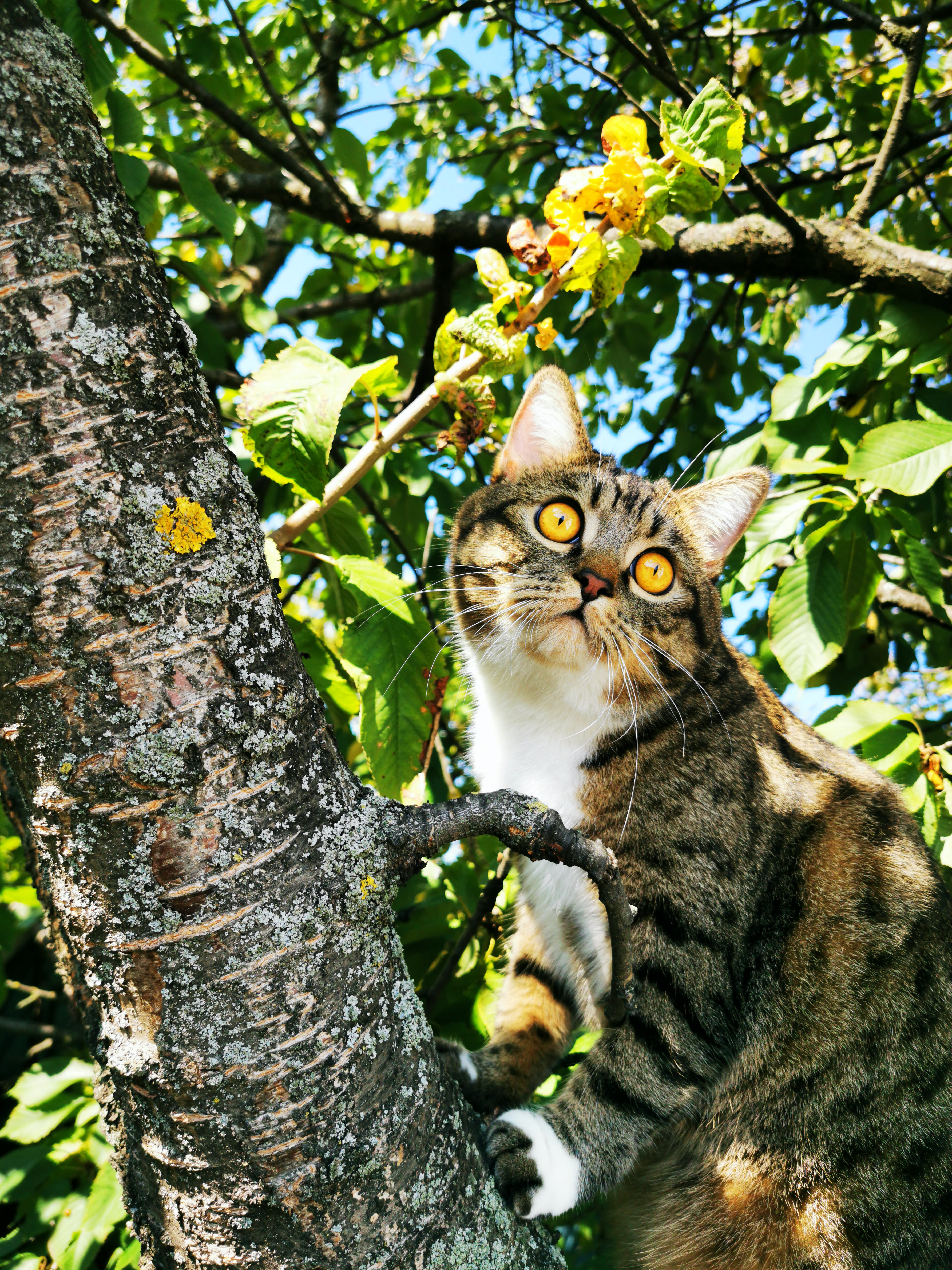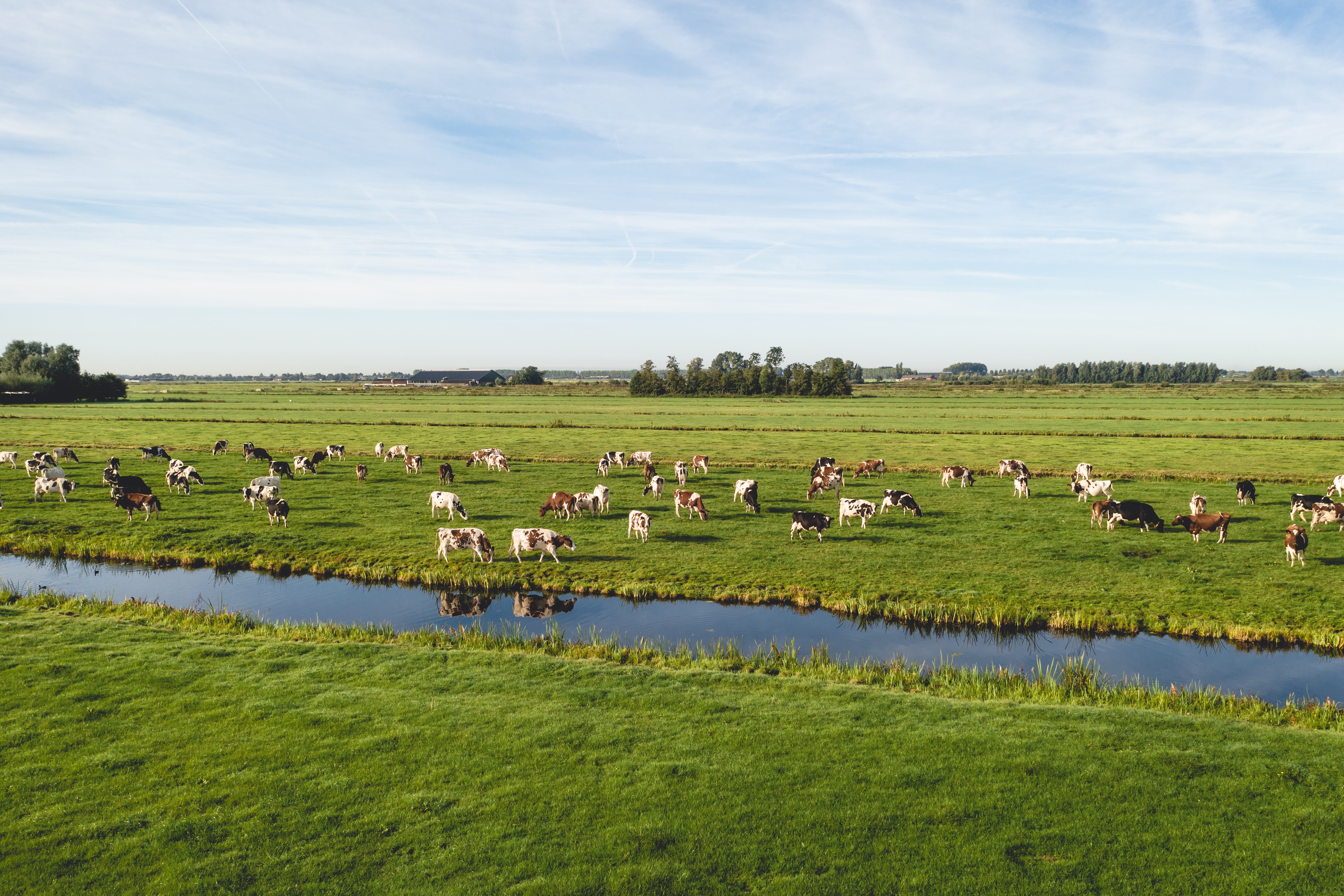Cats, Windmills, Marionettes and More in Dutch Idioms
 Dutch is spoken by 23 million people as a mother tongue. It's the only official language in the Netherlands, and one of three official languages in the neighboring province of Flanders, Belgium.
Dutch is spoken by 23 million people as a mother tongue. It's the only official language in the Netherlands, and one of three official languages in the neighboring province of Flanders, Belgium.
It also holds official status in Suriname (South America) and in the Caribbean countries of Aruba, Curaçao and Sint Maarten.
Dutch is closely related to both English and German, and it's often said that in respect to grammar and vocabulary, Dutch comes between the two. (You'll find examples from the idioms below at the end of the post)
And even if you don't speak Dutch, you're sure to be amused by these 10 typical expressions.
What got me going on this blog post was the idiom "de kat uit de boom kijken". My Dutch mom loved to use it and I, of course, knew what it meant. But I never really understood the literal meaning. In English, the literal translation is "to look the cat out of the tree". Huh?
So when my husband - who is learning Dutch - asked me to explain what that means, I couldn't. But his question did get me to find out what's behind the saying. Here it is. And I've added a few other fun idioms that I grew up with.
1. De kat uit de boom kijken.
Idiom: To see which way the wind blows
Literally: Watching the cat [until it comes] out of the tree (Photo by Lalita Tretiakova on Unsplash)
Explanation: To wait, not react immediately, but to first look carefully to see what's happening.
Origin: Onzetaal (see link at the bottom) suggests that the saying may go back to the way a dog will chase a cat up a tree, but then wait until the cat comes down again because dogs don't climb on trees. Apparently, the expression appeared already in the 18th century in a collection of proverbs.
Dutch Explanation: Afwachten, niet meteen reageren, maar eerst goed kijken wat er er aan de hand is.
German Idiom: Erst einmal sehen, wie der Hase läuft. (First of all see how the rabbit runs.)
2. Maak dat de kat wijs.
Idiom: Tell me another.
Literally: Make the cat believe that.
Explanation: Essentially, this idiom means: I don't believe you. Tell this nonsense to someone else.
The Dutch phrase "iemand iets wijsmaken" means "to make someone believe something (that may not be true)".
Dutch Explanation: Ik geloof je niet. Vertel die onzin maar ergens anders.
3. Een kat in de zak kopen.
Idiom: To buy a pig in a poke
Literally: Buying a cat in the bag
Explanation: Buying something without having looked at it before.
Origin: In earlier times, merchants at a market would often put a worthless cat into the bag instead of the pig or hare a person paid for. This worked especially well with inattentive customers.
Dutch Explanation: Iets kopen zonder het gezien te hebben.
German Idiom: Die Katze im Sack kaufen. (To buy the cat in a the sack.)
4. De molen is door de vang. 
Idiom: It all went south.
Literally: The (wind) mill has [broken through] the catch. (This picture of a Dutch windmill was taken during our 2016 Canal boating trip in the Netherlands.)
Explanation: Everything is going wrong. The matter is lost.
Origin: The Dutch term "de vang" on a windmill is "the catch" or "the drum brake", which prevents the wheel from moving on its own, even in a storm. When the brake no longer holds, you lose control over the turning of the mill and that can cause problems or even accidents.
Dutch Explanation: Alles gaat helemaal mis, alles loopt fout. De zaak is verloren.
5. Dat is koren op zijn molen.
Idiom: That plays directly into his hands.
Literally: That is grain on his mill.
Explanation: That's useful to him. He'll use that as an argument for what he wants anyway.
Origin: Although windmills in the Netherlands were mostly used to pump water from lower lying areas, they were also used to crush grain.
Dutch Explanation: Dat komt hem goed van pas. Hij zal dat meteen gebruiken als argument voor wat hij toch al wilde
German: Das is Wasser auf seine Mühle. (In Germany there were many more watermills than windmills!)
 6. Over koetjes en kalfjes praten.
6. Over koetjes en kalfjes praten.
Idiom: To make small talk
Literally: Talking about little cows and little calves (Photo by Alwin Kroon on Unsplash)
Explanation: To talk about unimportant things.
Origin: This expression very likely originated in the Dutch countryside where farmers talk about their cattle with each other. But the idiom turns the meaning around: what may be important for farmers, turns out to be unimportant to everyone else.
Dutch Explanation: Over onbeduidende zaken spreken.
7. Een wit voetje willen halen.
Idiom: To curry favor
Literally: Wanting to get a little white foot.
Explanation: Seeking to advance oneself, often through flattery or fawning.
Origin: This curious expression goes back to an earlier time, when you had to pay toll while passing from one region to another. Apparently, if you had a horse with four white feet, you lucked out and did not have to pay. Later, when it became a more general idiom, one little white foot was enough.
Dutch Explanation: Bij iemand in de gunst willen komen, vaak door slijmen.
8. Van de prins geen kwaad weten.
Idiom: Butter wouldn't melt in his mouth.
Literally: To know no evil of the prince.
Explanation: a) To be totally innocent. b) To pretend you don't know anything about what's going on.
Origin: This is an old expression, dating back to the 17th century. Very likely, it refers to a prince from the House of Orange. You were either totally innocent and knew nothing. Or, you were aware that it was dangerous to speak badly about a powerful person, so it was better to keep such thoughts to yourself.
Dutch: a) Totaal onschuldig zijn. b) Doen als of je niets weet.
9. Nu komt de aap uit de mouw.
Idiom: The cat is out of the bag.
Literally: Now the monkey comes out of the sleeve.
Explanation: When it's suddenly clear what's going on.
Origin: This goes back to the magician's art of suddenly popping a monkey out of his sleeve. It suggests that something that was kept hidden suddenly comes out, for example someone's true intentions or character.
Dutch: Als ineens duidelijk wordt hoe iets zit.
10. Nu heb je de poppen aan het dansen.
Idiom: Now the fat is in the fire.
Literally: Now you have the dolls dancing. (Photo by Sagar Dani on Unsplash)
Explanation: The quarrel or fight is starting. There's trouble ahead.
Origin: Puppet shows have been a popular form of entertainment since the Middle Ages. When the dolls start dancing - i.e. the puppet show starts - it's the beginning of conflict, quarrels, etc. Nowadays, the expression used for the moment when problems arise, when something starts going wrong.
Dutch Explanation: De ruzie of twist is begonnen. Problemen zijn onvermeidbaar.
In these our restless times, the last expression seems to come up a lot. I've heard it several times when listening to the daily Dutch Podcast on NCR Vandaag, and most recently in the one talking about the German Wirecard scandal.
It's almost impossible to find the absolute equivalent of an idiom in another language, because expressions are often shaped by a people's culture. For example, the Dutch idiom "nu heb je de poppen aan het dansen" contains an "entertainment" factor (it's a "show"!), which "fat is in the fire" doesn't have.
To find out more about the above idioms or to look for others, go on these sites 33 Dutch Idioms, Onzetaal, A Taste of Dutch.
You may not speak Dutch, but if you speak English or German you'll find that these three Germanic languages share many cognates. In some of these, the meaning changes somewhat. Here are a few examples from the idioms above:
|
English |
Dutch |
German |
|
the cat |
de kat |
die Katze |
|
make |
maken |
machen |
|
the sack |
de zak |
der Sack |
|
the mill |
de molen |
die Mühle |
|
through |
door |
durch |
|
the cow |
de koe |
die Kuh |
|
the foot |
de voet |
der Fuß |
|
come |
komen |
kommen |
|
the puppet |
de pop |
die Puppe |
|
dance |
dansen |
tanzen |
Our recent posts looked at German, French, Italian and Spanish idioms
Dutch isn't one of our four languages that you can practice on GamesforLanguage.
However, if you want to learn some basics in Dutch: greetings, polite phrases or travel terms, go to our - also completely free - sister site Lingo-Late, where we have 30+ or so Dutch phrases. You can Listen, Record Yourself, and Playback Your Voice, as many times as you want to learn and practice.
